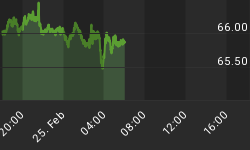Move over Tesla, Inc. (NASDAQ:TSLA), there’s a new cult stock in town, a food company nonetheless. And just like its high-profile EV brethren, it’s promising to become the next battleground stock, full of drama and controversy. Shares of Beyond Meat Inc. (NASDAQ:BYND), a maker of meat alternatives, had soared +800 percent since its May 2 IPO in a Tesla-esque climb to the top.
But now they have shared Tesla’s other fate, tanking nearly 20 percent shortly after the company delivered its second public earnings scorecard that failed to meet heightened expectations.
Beyond has reported Q2 revenue of $67.3 million, an impressive 287 percent year-on-year increase and $14.5 million above the Wall Street consensus. However, GAAP EPS of -$0.24 badly missed estimates by $0.15 despite the company reporting improved margins. Adjusted EBITDA for the quarter was $6.9M vs. a $5.6M loss posted last year. Gross profit margin of 33.8 percent represented a considerable improvement on last year’s 15.0 percent and the 26.4-percent consensus.
Beyond Meat, though, had successfully taken a run through the earnings gauntlet after it reported its first ever earnings in June leading to a meteoric 40-percent gain by the shares.
Heightened expectations
It’s not very often that investors get so worked up over a food company.
Cult stocks--Tesla, GoPro Inc. (NASDAQ:GPRO), Apple Inc.(NASDAQ:AAPL), Amazon Inc. (NASDAQ:AMZN), Netflix Inc. (NASDAQ:NFLX) et al-- are more often than not in sexier fields such as tech and biotech.
Yet, investors have been piling on BYND shares, bidding them up more than 800 percent in less than three months.
Before the bloodbath, Beyond boasted a valuation of around $14 billion, more than double that by peer Dunkin Brands Group Inc. (NASDAQ:DNKN); never mind the fact that DNKN has nearly five times its sales. To get a better perspective of just how absurd the company’s valuation is, consider that no large food company, specialty or conglomerate, boasts a P/S above 1. It’s closest competitors are meat-substitute specialists including Tyson Foods Inc. (NYSE:TSN) with a P/S of just 0.54 while Maple Leaf Farms (OTCPK:MNLF) has the highest valuation in the space at slightly above 1. BYND’s current revenue run-rate puts its P/S ratio at an unfathomable 51. The company would have to double revenues every year for the next six or seven years just to get closer to the norm.
So, what’s all this madness about meatless patties?
Well, apparently the investing universe has become so enamored of Beyond’s fairy tale growth story including predictions that a third of Americans and Europeans will move to meat alternatives in five years’ time.
Related: The World’s Largest Gold Buyer Is Now Russia
But what many investors are ignoring is that many Americans are still unwilling to ditch their beef hamburgers for some veggie burgers. According to Nielsen data, 21.6 of U.S. households currently purchase meat alternatives. While that sounds impressive, the vast majority--98 percent according to the study--still buy the real thing from grocery stores thus proving that the demand for meat substitutes is coming from the so-called flexitarians. Actually the market for meatless meats is still puny--last year, U.S. consumers bought $893 million worth of meat substitutes compared to $95 billion on actual meat.
Not to mention that BYND is not alone in this market and will have to square it off against heavy weights like Tyson Foods, Kellogg Co (NYSE:K), European giant Nestle S.A. (OTCPK:NSRGF) and Morningside Farms which currently supplies McDonald’s Corp. (NYSE:MCD).
Most worrying of all though is that Beyond Meats is yet to demonstrate a clear path to profitability. The company has mainly been focussing on ramping up its production capacity as it anticipates growing demand for its products. However, it’s treading on uncharted waters since it’s not yet clear how much long-term demand is really out for its products.
Investors will definitely bolt if the company starts reporting a surplus of Beyond Burgers And Beyond Sausages.
Investing in cult stocks
The BYND stock massacre clearly highlights the dangers of investing in cult stocks.
A huge chunk of the company’s share float is in the hands of shorts and day traders--a clear recipe for disaster due to high volatility. Bear in mind that only about 20 percent of the company’s 60 million shares are publicly traded with the rest set to become available when the lock-up period expires on 29th October 2019. It probably won’t be until then when we get a good sense of how the shares are likely to perform over the mid- and long-term.
That’s not to say that cult stocks are inherently bad. On the contrary, they can be some of the most profitable securities in the market. Even at a share price of $190, BYND shares are still up an impressive 660 percent from the IPO price of $25. It’s just that investors have to be careful not to get swept in too much that they end up ignoring the attendant risks.
By Alex Kimani for SafeHaven.com
















